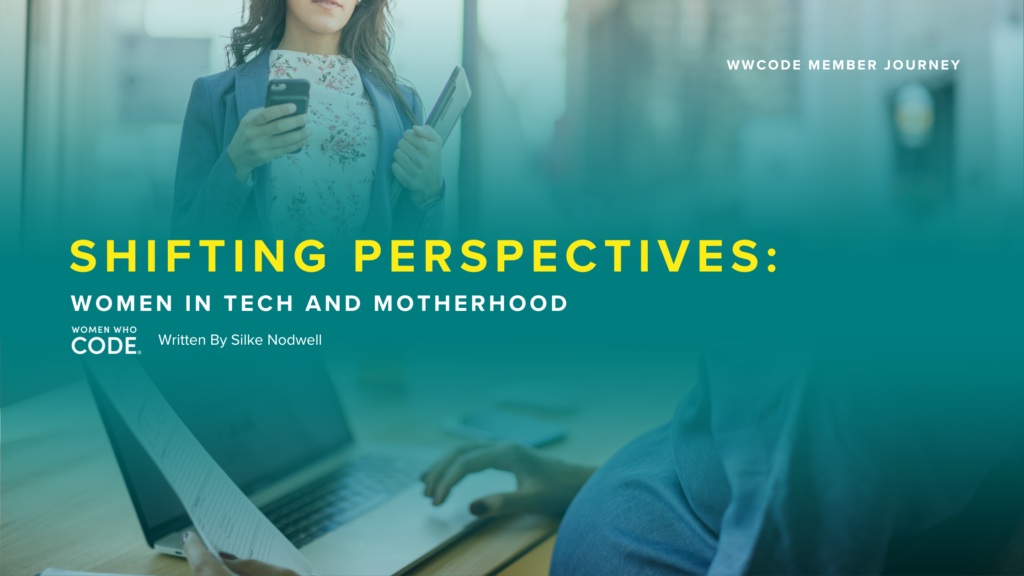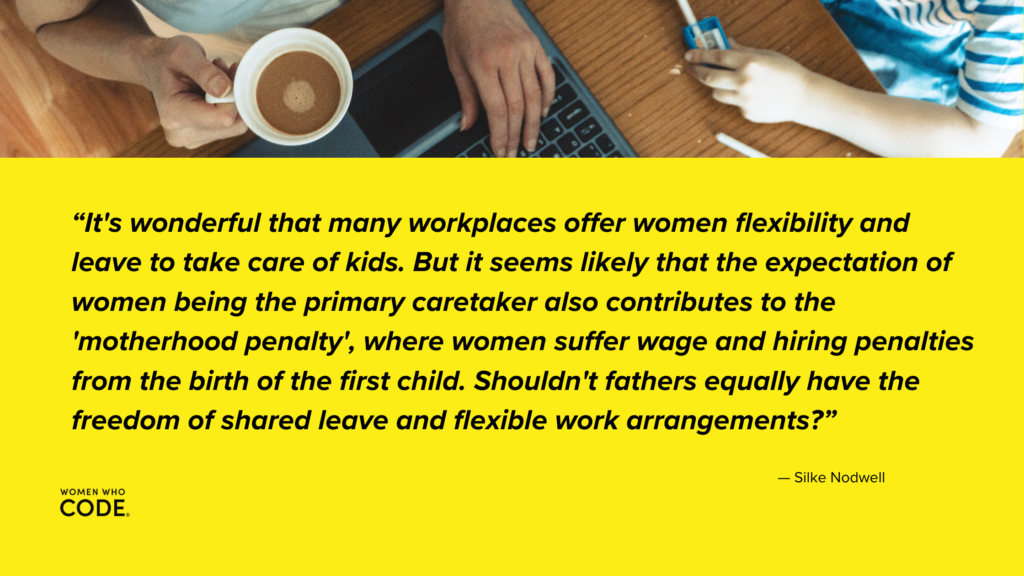Shifting Perspectives: Women in Tech and Motherhood | WWCode Member Journey
Written by Silke Nodwell

For Women’s History Month, we asked our members to reflect on their journeys as women in tech. Read Silke’s experience confronting the intersection of her gender with her career after motherhood.
I was never treated differently as a woman until I got pregnant.
While I happily participated in initiatives to encourage women in STEM, I never felt in need of extra help. My parents had never treated me as less capable. I was always interested in math, for example, and my parents encouraged me to do so. It was nothing unusual in my family; my grandmother completed a Master’s in Mathematics, and my mom is an engineer. It was fun to go to open days at schools and universities and hear them encouraging girls to go into STEM. It made no difference to me, as I was already quite determined to study mathematics. Still, it felt good to be wanted, and I applauded myself for doing my part to rebalance the gender ratio in STEM.
I studied for an MSci in Mathematics at Imperial College, and 30% of the class of 250 were women. It could have been more balanced, and the ratios were much lower amongst the British and Europeans. However, the important thing was that I was never “the” girl, only ever “a” girl in mathematics: my gender did not define me.
The only effects I felt were positive. We had a Women in Maths club, which provided valuable networking opportunities — and gave out free pizza. After a year abroad in Berlin with the ERASMUS program, I was invited to speak on a German podcast with the Goethe-Institut about women in STEM in return for a £50 book voucher.
My first job in STEM was in usage and tech support for a financial company. I was the only woman on the team, but I was always part of the group. After a year, I was looking for a new challenge, and a few months later, I was hired as a data scientist at a startup. This time, I felt I had been treated favorably as a woman. The two male interviewers were interested to hear about my participation in Women Who Code and said they were also keen to see more women in the tech field. “What were my experiences as a woman?” I didn’t have a great answer to this question. “Quite similar, I imagine, to any other person in this field.”
Then I got pregnant. Pregnancy and parenthood began to reveal some differences of what it means to be a woman also working toward a career.
I struggled through daily nausea and tiredness throughout the first trimester but was scared to say anything to my team. My team was wonderfully supportive when I finally broke the news mid-second trimester. The CEO brought me flowers. Emphasizing the company’s support, he asked if I would like to work part-time upon returning.
I took four months off work, and my husband took shared parental leave for the following four months. Friends and acquaintances would ask me, “Why are you returning to work after only four months?” In contrast, my husband’s work colleagues were shocked when he announced that he would be off work for four months. “Oh wow, I didn’t expect you to take such a long time off work.”
The contrast in the societal perceptions of motherhood and fatherhood struck me profoundly. It was the first instance where I felt defined primarily by my gender. I am now a mother, and with that comes the expectation of being the primary caretaker of my child.

It’s wonderful that many workplaces offer women flexibility and leave to take care of kids. But it seems likely that the expectation of women being the primary caretaker also contributes to the ‘motherhood penalty,’ where women suffer wage and hiring penalties from the birth of the first child. Shouldn’t fathers equally have the freedom of shared leave and flexible work arrangements?
This Women’s History Month, let’s celebrate the progress that we have made in increasing diversity in classrooms and workforces. Let’s continue to work towards a future where girls are supported in the pursuit of their passions, as I have been. But let’s also remember that true equality will only be achieved when we recognize that fathers are just as much parents as mothers — and that both can excel in careers along with having children.
Learn more about Silke and connect via LinkedIn.